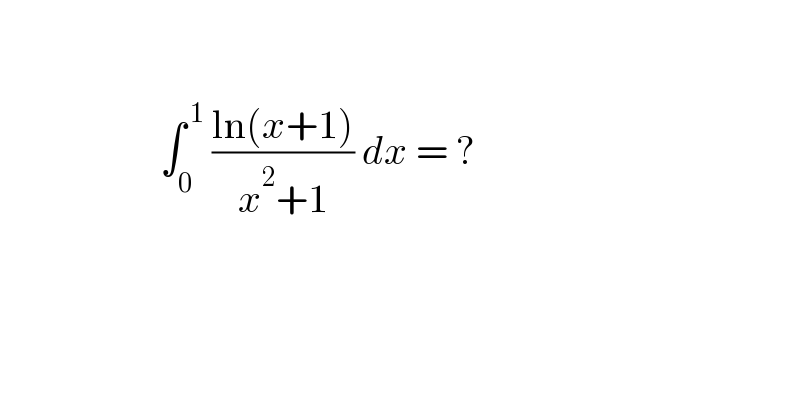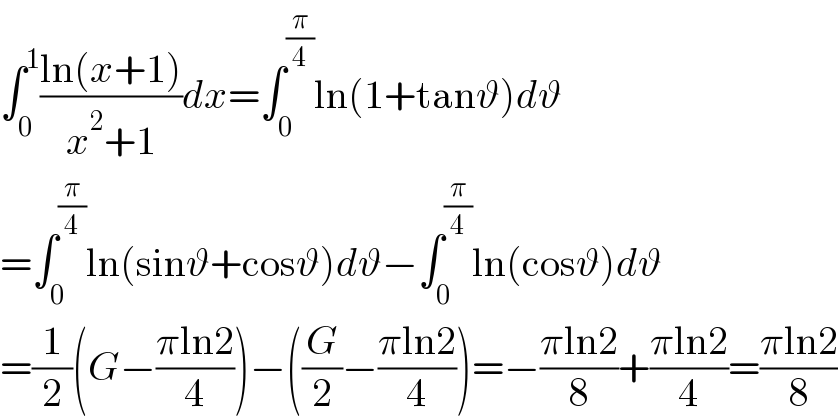
Question and Answers Forum
Question Number 150993 by talminator2856791 last updated on 17/Aug/21

Commented by puissant last updated on 17/Aug/21

Answered by Ar Brandon last updated on 17/Aug/21

| ||
Question and Answers Forum | ||
Question Number 150993 by talminator2856791 last updated on 17/Aug/21 | ||
 | ||
Commented by puissant last updated on 17/Aug/21 | ||
 | ||
Answered by Ar Brandon last updated on 17/Aug/21 | ||
 | ||
| ||